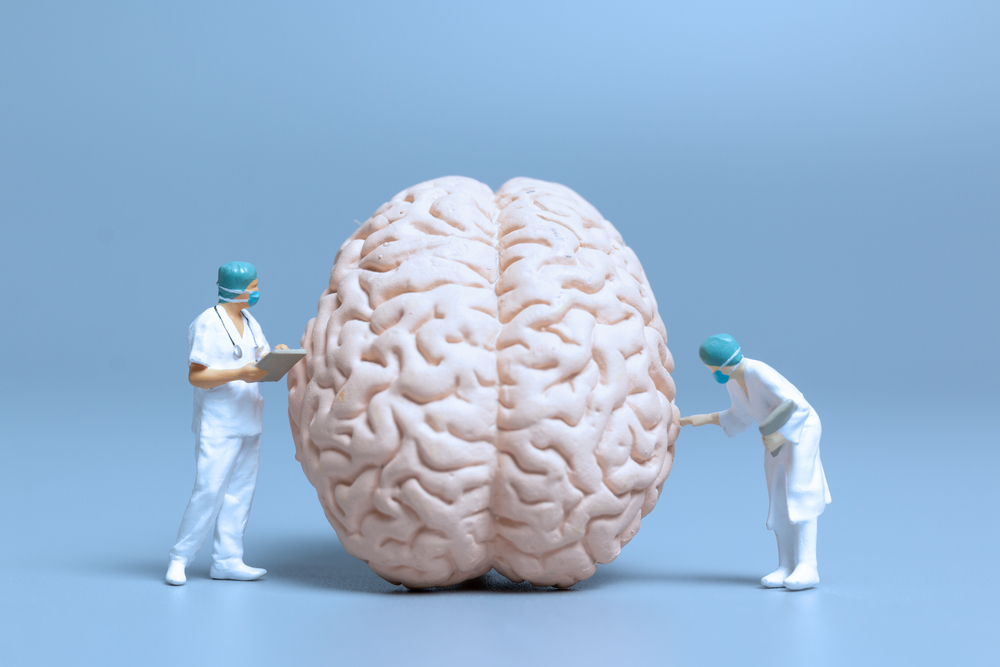10 things you never knew about your mental health
Author : Dr.Tulika | 27 Dec 2023

Mental health and mental illness are two topics that are frequently misconstrued. It's critical to know the facts as the society becomes more conscious of mental conditions and how they impact people. Even in today's world, ignorance, and biases remain impediments to therapy, and the consequences of severe depression can be lethal. Whereas spreading information about depression can save several lives. That's why we've prepared a list of ten things related to mental health that one should be aware of.
1. You are not alone in this. According to a survey, over 152 million people are predicted to battle dementia by 2050, with 68 percent living in developing nations.
Every three seconds, a patient is diagnosed with memory impairment or more commonly known as dementia. Common symptoms are memory loss, confusion, capriciousness, trouble performing the day-to-day job, and inconsistent language. The most prevalent reason is Alzheimer's disease. This corresponds to about 10 million new cases per year around the world, affecting more than 50 million people. Worldwide approximately 280 million people suffer from depression, with another 300 million undergoing some form of anxiety. Those are huge numbers, and they're just going to get bigger.
2. Men and women react differently to mental issues. The occurrence of several sorts of common mental diseases was explored by gender in a survey. As per the report, women with anxiety problems are likely to internalize emotions, leading to disengagement, isolation, and sadness. In comparison, men are more likely to externalize their feelings, which leads to hostile, reckless, aggressive, and grossly negligent conduct.
Gender disparities in the prevalence rates of several mental disorders were attributable to contrasts in their liabilities that lead to this internalization and externalization of emotions.
3. A strong correlation between gut health and brain function has been discovered through continuous study. Healthy gut bacteria, for example, create almost 90% of the brain's chemical serotonin, which influences mood, indicating a strong correlation between healthy gut micro biota and decreased incidences of depression.
This theory provides a reasonable explanation for how what we eat influences our mental well-being because diet plays a crucial effect on the health and variation of the gut micro biome. For example, as per a study, people who follow a Mediterranean diet have a 33% reduced risk of developing depression. Those who follow a Washoku Japanese diet have a 36% lower risk of Alzheimer's disease.
4. Overwhelming number of mental health problems are neither serious nor these conditions are there for forever.
While the phrase "mental health" is often linked with serious mental illnesses, it actually refers to a range of conditions ranging from excellent health to major sickness. The majority of mental health concerns are mild to moderate short-term mental health illnesses, rather than acute or long-term mental health issues.
According to global estimates, depression affects approximately 300 million individuals globally, while anxiety disorders affect around 4% of the global population. The majority of mental health issues are caused by these two disorders.
5. Insufficient sleep triggers depression.
The average time spent sleeping is declining due to modern personal choices. According to a survey, An American sleeps an average of fewer than 6 hours every day, with stats suggesting those numbers are going down further.
Overall health and well-being are determined by sleep. Many chronic diseases and ailments, such as type 2 diabetes, heart ailments, weight gain, and anxiety, are linked to lack of sleep.
6. Striving for perfection is a healthy habit, but the urge to be flawless all of the time can impede one's efforts.
Perfectionism is classified as either positive or negative by psychologists. Set reasonable objectives, let go of setbacks, recognize failures as prospects for progress, and enjoy the process and the outcome are all good perfectionist habits.
On the other hand, setting impossible expectations, discontent with anything less than perfection, and fixation with loss or rejection, are all examples of negative perfection habits. So it is crucial to draw a line for the sake of one’s mental health.
7. Sedentary behaviour is detrimental to one's physical outlook and equally impacts mental health. Regular exercise can help with stress by releasing endorphins and other soothing chemicals, regulating immune system toxins that aggravate stress, and elevating body temperature, all of which can help to calm you down.
Regular physical activity can help people build confidence, remove one's mind from anxieties, enhance community engagement, and handle everyday tasks positively.
8. Several research demonstrate that excessive usage of social media causes anxiety and lowers self-esteem in people. In a recent poll of 1500 frequent social media users, it was observed that 62% of participants felt inferior and 60% felt envy when they pale in comparison to other social media users.
Research also highlights using multiple social media platforms can be harmful to one’s mental wellbeing and raise the chances of developing sadness and anxiety over time.
9. Everyone experiences negative thoughts from time to time, and occasional emotions of failure are usually not a sign of mental illness. On the other hand, encouraging negative attitudes can lead to a failure mindset, which can be harmful to one's mental health. Negative thoughts that imply how dismal one's life is might keep people awake at night and hinder them from moving on throughout the day. Continuous feelings of failure become habitual if left unchecked.
Failure-related thoughts and feelings wreak havoc on one's mental health, causing anxiety and sadness. Negative thoughts make it difficult to create goals, value natural abilities, and highlight mistakes.
10. Regret is an emotion that is only beneficial in limited quantities. Studies have found that they have a major role to play in your mental health. Everyone will have regrets in life – not dating someone, not finding a promotion, not getting a car – but regret should not be a regular occurrence.
According to research, regret is more prevalent in cultures where people influence their life choices. Regret can become a permanent contemplation on what could have been with constant practice. A person in a permanent state of regret suffers from anxiety, sleep disorders, and concentration problems and various mental issues.

















